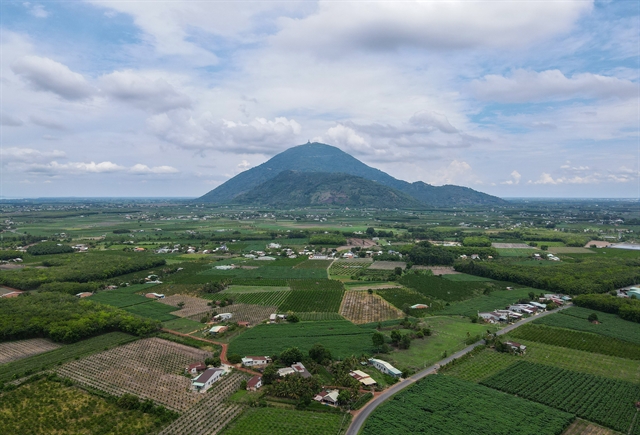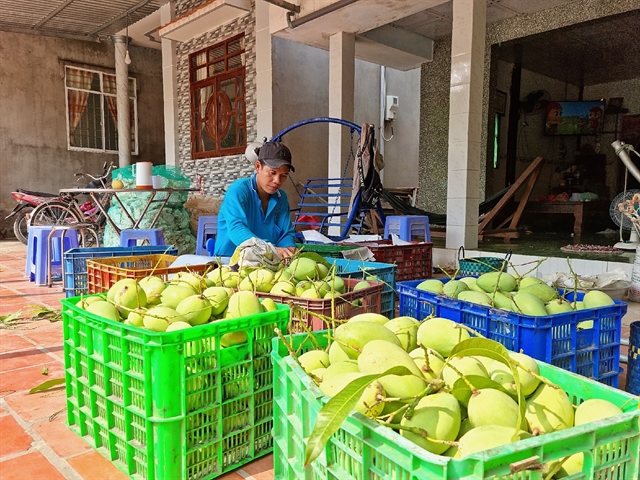 Society
Society

 |
| Farmers in the Mekong Delta are suffering losses following the steep fall in mango prices. — Photo laodong.vn |
HCM CITY — Many farmers in the Mekong Delta have been selling mangoes at extremely low prices, some varieties at just VNĐ2,500 per kilogramme.
Nguyễn Văn Quýt in An Giang Province was quoted by Tuổi Trẻ newspaper as saying that the price of the keo mango dropped considerably to just VNĐ2,500.
“It needs to be at least VNĐ10,000 per kilogramme for us to make a profit.”
H., an exporter through the Khánh Bình border gate in An Phú District, said farmers had been selling their mangoes at extremely low prices to minimise losses mainly due to a fall in demand in China, one of Việt Nam’s main export markets.
According to Trương Chí Thông, deputy head of the district Office of Agriculture and Rural Development, farmers prefer to sell to traders rather than companies, which results in inefficient distribution.
“Imports have also dragged down the price of Vietnamese mangoes.”
In Đồng Tháp Province, farmer Nguyễn Văn Mách said at an average price of VNĐ4,000 per kilogramme for Cát Chu and Hòa Lộc mangoes, his losses are around VNĐ80 million.
“We have to feed unsold mangoes to livestock and fish since co-operatives are not buying from us this year. In past years the price of Hòa Lộc mango was stable, and co-operatives bought it at VNĐ90,000 per kilogramme.”
Nguyễn Sĩ Lâm, director of the An Giang Department of Agriculture and Rural Development, said the province has been promoting linkages between farmers and enterprises.
“We have worked with the Farmers Association and enterprises to encourage them to cooperate and find better distribution channels.”
The chairman of the Tịnh Thới Cooperatives of Agricultural Services (Cao Lãnh City, Đồng Tháp Province), Trần Văn Trạng, said there probably would be no price increase until the end of this season, and farmers should consider their production timing in future to avoid oversupply. — VNS




